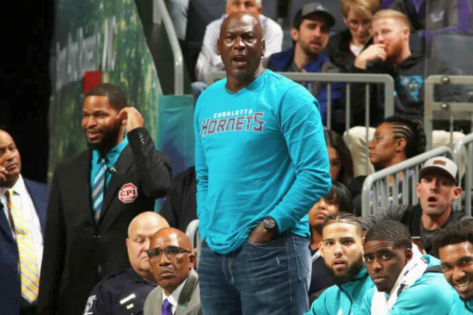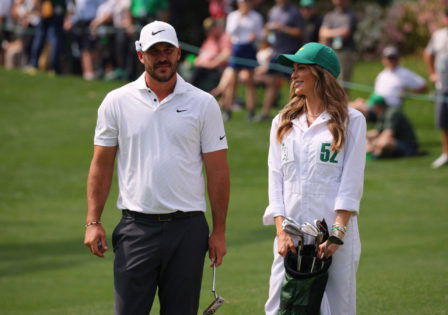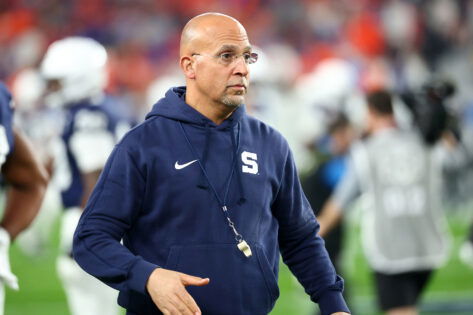Michael Jordan the team owner doesn’t get the same glory as 6x NBA champion, MVP, and Air Jordan mogul, Michael Jordan. Charles Barkley’s criticism of his management ended their friendship. In fact, people even praised him for selling the Charlotte Hornets. Very few had the guts to publicly admit that MJ was a smart governor. One of them would be Jay Williams. After a motorcycle accident ended his career early, Williams rebranded into an analyst and businessman. He’s one of the sharpest insiders of the NBA business offcourt. After dissecting the empires Shaquille O’Neal and LeBron James built, he detailed how Jordan’s Hornets are a model of success.
In a very insightful Intsagram Reel, Williams called out the criticism in the opening line. “They said my GOAT was a horrible owner. That he couldn’t build a winner, that the Hornets never made a deep playoff run, that Charlotte was a failure.”
To those people he said, “They didn’t know s–t about business.” He first dove into the history of Jordan’s ownership of the Hornets – from buying a small stake in the erstwhile Bobcats to turning into a majority owner by 2010 with a $275 million investment. At that time, Charlotte was bleeding $30 million a year due to reasons like small market and trash attendance and no playoff pedigree.
Yet this down-and-out team sold for $3 billion – “Over $2 billion in realized profit” for Jordan alone – 15 years later, a year before the Celtics’ $7 billion sale and Lakers’ $10 billion. As Williams points out, Jordan made a 10x profit through a team that’s not considered at par with two of the most winning teams in NBA history. The sale skyrocketed MJ’s net worth to $3.5 billion and up a few spots on Forbes’ billionaire lists. Why? Williams said, “Jordan wasn’t buying rings, he was buying position.”
Williams painted a general idea of the NBA ownership setting. Most teams operate on a loss or barely breaking even. “Why does this happen? Because you stack superstars, you don’t just pay salaries, you trigger luxury tax, you fund charter upgrades, increased security, private chefs, 24/7 medical staff, entourage travel, housing stipends, all that comes with something we call capital calls. Every round of playoffs you don’t win, that’s red ink with no offset.”
Do note, MJ was operating the Hornets before the 2023 CBA. The second apron with its tighter restrictions have come into effect since then and larger market teams are getting stingy on superstars and trades since. A live example would be the Warriors refusing to trade Jonathan Kuminga because they have a higher chance to recover the assets midseason.
Jordan not only navigated a small market, he raised the bar for one. Williams threw the covers on how.
NBA players hail Michael Jordan’s ownership
There’s a lot of stories about Michael Jordan’s reign at the Hornets. Some players felt privileged to play under him, others were terrified about his high standards. Most notably, Jordan’s offbeat player selections and not prioritizing star players was a head-scratcher. Players noted that Jordan was a visible presence on the floor as an owner.
Bt the time Jordan was leaving the Hornets, fans were not happy with his reign. They cited his poor draft selections like Cody Zeller. Zeller himself praised his boss as someone who personally engaged with the athletes.
Being a present owner, as Williams illustrates, was profitable. “While you’re laughing at Charlotte missing the playoffs Jordan was the only one in the room not wiring in more capital. He never chased stars. He never cracked the luxury tax. Not even once. He kept costs lean. He ran even a positive and by 2022, Charlotte pulled a $94 million in operating profit.”
The Lakers, which Williams uses as example, raked in $115 million in operating income in 2022. Its expenses on players alone surpassed that. So no profit for this team.
Williams is not making things up. Which is probably why Clippers star, Matt Barnes liked his video among the many commenters agreeing with the ESPN analyst.
Jordan didn’t make the Hornets into the second coming of the Bulls dynasty. But Williams calls it business ‘mastery’ with what he did. “He didn’t just flip the team. He revived it, rebranded to the Hornets, triple merch sales, filled the lower bowl for a full season, landed the All Star Game, secured a $245 million arena reno[vation] with zero dilution, extended the lease to 2045. He took the distressed asset and made it a civic trust.”
He even found co-owners and buyers for the team who understood the culture best because Jordan wasn’t about to leave his work to someone who’d dismantle it.
Given how MJ made his Nike contract into the Jordan Brand empire and pockets $330 million annually for it, everyone knows he’s a Black Cat in business too. So when he finalized a $3 billion sale in 2024, it was perfectly timed. “You think ownership is about wins? No. Ownership is about liquidity events, it’s about buying at a discount, optimizing cash flow, and exiting when the cap table is at peak heat. That’s what Jordan did. The Hornets? Yeah, they didn’t make history on the court. Jordan just made it off of it because while other owners were chasing banners he was too busy compounding equity in silence.”
This is an underrated perspective. Jordan was called ‘cheap’ for not splurging in free agency. Now that’s exactly what major teams are doing with the second apron. Others also say that James Dolan deserves the same criticism for the Knicks’ record in three decades. The only difference is that a former NBA champion is being held to a different standard.
The post Michael Jordan Won As Hornets’ Owner Despite Scandalous Tenure, Ex-NBA Star Claims appeared first on EssentiallySports.



